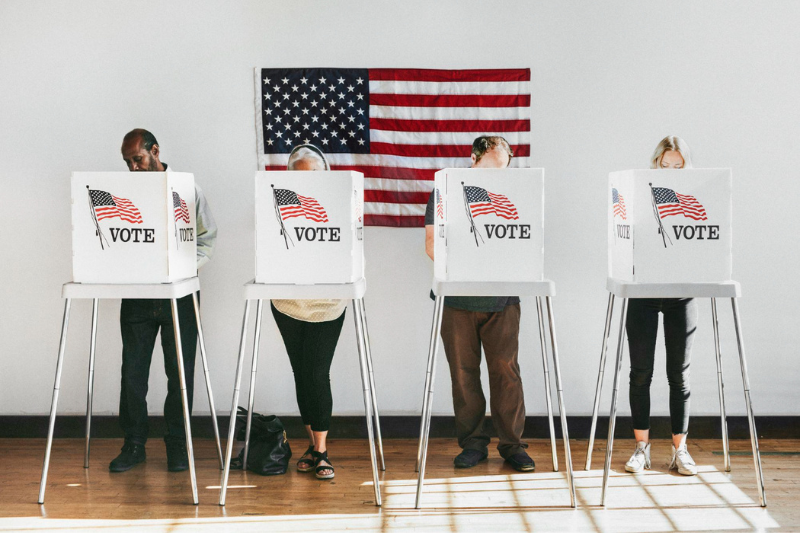Key Takeaways:
- Consumers are increasingly aware and protective of their data privacy, forcing organizations to be more transparent in their data collection
- Market research companies must uphold strict privacy guidelines and work to combat fraud in data collection
- Successful market research builds trust and transparency with consumers looking to protect their data
Data privacy is a growing concern across the globe. This coincides with the increased adoption of digital technologies, which generate large amounts of identifiable data. In response, regulatory bodies step in to govern data privacy, such as GDPR in Europe, CCPA in California, and DPA in the UK.
Awareness of data privacy is increasing, alongside the desire for better privacy protections. How will this impact market research when respondents share deeply personal and private information? Exploring this topic further, it’s important to look at how market research builds trust and transparency around data.
In this Article:
How Does Data Privacy Relate to Market Research?
Increasing Awareness and Demand for Data Privacy Worldwide, But Low Trust
Building Transparency and Trust Around Data in Market Research
1. Market, Opinion, and Social Research Certification – ISO 20252
2. Overcoming Market Research Fraud
3. Brand Communities
Protecting Data Privacy and Conducting Effective Market Research Is a Priority for Sago
Partner With Us To Protect Respondents’ Privacy and Build Trust
How Does Data Privacy Relate to Market Research?
As consumer awareness of data privacy grows, it impacts market research. How so?
Data and market research are inextricably linked, whether quantitative or qualitative. Market research falls within the parameters of GDPR, requiring agencies to identify which of the following bases are most relevant to their operations. These are known as lawful bases for processing user data:
- Consent – The data subject provides clear consent for you to process their data, for a specific purpose.
- Contract – Data processing is necessary to fulfill contractual obligations with the individual or as a prerequisite to entering a contract with the individual.
- Legal obligation – Data processing is necessary to maintain compliance with the law.
- Vital interest – Data processing is necessary to protect a person’s life.
- Public task – Data processing is necessary to perform tasks in the public interest or for official functions where the task or function is enshrined in law.
- Legitimate interests – Data processing is necessary for the legitimate interests of a third party or the company—unless there is good reason to protect the individual’s personal data that overrides the legitimate interest.
Market research agencies operating in niche areas may be granted exemptions from GDPR. Article 89 of GDPR states researchers conducting historical, scientific, or statistical research can be exempt from secondary processing and sensitive data usage rules. However, they must demonstrate sufficient safeguards to protect the information, such as data minimization and pseudonymization.
Increasing Awareness and Demand for Data Privacy Worldwide, But Low Trust
To establish trust in data privacy, it’s all about getting consent from the data subject.
Research from McKinsey shows that while trust levels are low overall, respondents find the healthcare (44 percent) and financial services (44 percent) industries the most trustworthy in protecting their data.
For years, consumers have felt businesses have too much access and control over their data. Pew Research Center released statistics back in 2015: 93 percent of U.S. adults say “being in control of who has their data” is important; a further 90 percent say “controlling what data is collected” is important. Consumers want the right of consent, and to be in control. It is their data, after all.
These sentiments led to privacy regulations like GDPR, which give consumers the right to be forgotten. That means consumers have the right to request all their personal data be erased from corporate IT systems unilaterally.
Building Transparency and Trust Around Data in Market Research
Market research is a force for good. It helps businesses build trust and become more transparent with consumers around data usage.
Here are some ways the market research industry drives transparency and trust through certification, fraud protection, and digital communities:
1. Market, Opinion, and Social Research Certification – ISO 20252
The ISO 20252 international standard covers market, opinion, and social research.
It establishes terms and definitions alongside service requirements for organizations and individuals conducting market, opinion, and social research.
The core framework offers the following outcomes for researchers:
- Research confidentiality
- Documentation guidance for systems and practices such as records management
- Workforce and infrastructure responsibilities
- Information security risk framework and controls
- Strict subcontracting and outsourcing rules and procedures
- Detailed deliverables such as project planning, delivery, and reporting
- Authorized requirements
Benefits for researchers and market research agencies include:
- Risk mitigation
- Increased revenue
- Increased efficiency
- Greater consistency
- Control over supplier relationships
- Internationally recognized credentials
2. Overcoming Market Research Fraud
According to GreenBook, between 15 and 30 percent of market research classifies as fraudulent. The COVID-19 pandemic greatly exacerbated this problem.
This fraudulent activity appears in the following forms:
- Unqualified – This refers to research respondents. If a research campaign requires someone with a Ph.D., but the respondent lies about the qualification, they are unqualified.
- Bots and Fake Traffic – Research firms risk bot submissions and fake traffic with online market research surveys. GreenBook reports “underground activity” where content creators teach users how to bypass survey requirements, leading to unqualified participants.
- Identity Theft – Repeated data breaches in the past enabled widespread identity theft using stolen information. A social security number could be all it takes. HaveIBeenPwned lists 632 website data breaches and just under 12 billion compromised accounts online as of October 2022.
In response to fraudulent activity, market research firms like Sago take the following steps:
- Repeat Questions – If a respondent answers differently to identical questions, this may reveal fraud.
- Survey Timing – If a survey that should take 10 minutes is completed in one minute, this may indicate fraud.
- Open-Ended Comments – Monitoring text inputs helps detect plagiarism or spam.
- Zip Codes, Phone Numbers, and Email Addresses – These details are cross-checked to validate a respondent’s location. Similarly, digital and VOIP phone numbers in different locations may indicate fraud. Email addresses carry a reputational score which can be checked using services like IPQS.
- Device Fingerprinting – Each laptop and smartphone carries a device ID. Devices securely expose this ID to market research software, which stays the same even when the IP address changes. This helps to detect survey stuffing fraud, typically performed using VPN services that change IP addresses.
Sago is fully committed to protecting the privacy and security of all stored research data, including but not limited to the above methods.
3. Brand Communities
Brand communities are a great way to bring respondents together and establish a sense of purpose during research. They directly tackle the issue of transparency and trust in research.
Brand communities enable continuous, longitudinal research. As people spend more time in the community, it increases the authenticity of responses. Participants tend to feel there is greater transparency in how and why their data is collected and used, which increases trust. Get more details on how to “Build Successful Brand Communities at Scale.”
Protecting Data Privacy and Conducting Effective Market Research is a Priority for Sago
The world faces data privacy hurdles. Consumers rightly want more control over their data, and this increases the responsibilities of researchers and market research firms. Thankfully, market research is well equipped to provide transparency and build trust around participant data.
The key is to work with a partner who prioritizes the needs of respondents. Sago holds ISO 9001 and ISO 20252 certifications as part of our unwavering commitment to market research privacy and security.










 7 Minutes
7 Minutes 











